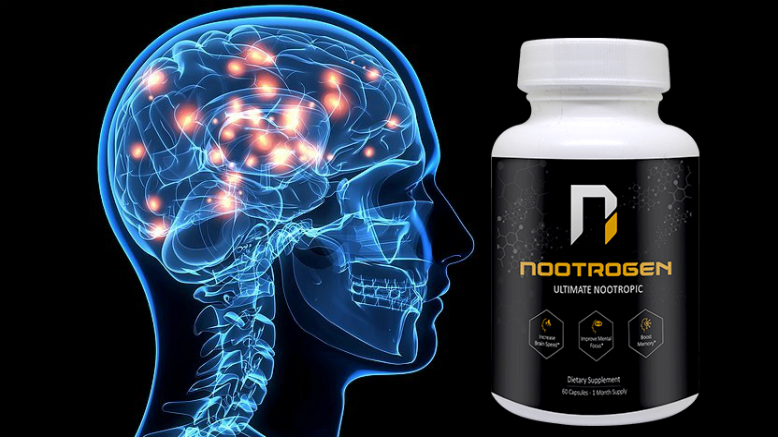Introduction
Vitamin K2, a lesser-known member of the vitamin K family, is gaining recognition for its potential to support brain health and cognitive function. Often associated with bone and cardiovascular health, Vitamin K2 has a range of benefits that extend to the nootropic realm. In this comprehensive guide, we will explore what Vitamin K2 is, how it works, and the diverse array of benefits it offers for those seeking cognitive enhancement and improved mental performance.
Understanding Vitamin K2 Nootropics
Vitamin K2, also known as menaquinone, is a fat-soluble vitamin that plays a vital role in calcium metabolism. It is less recognized than its counterpart, Vitamin K1 (phylloquinone), which is primarily involved in blood clotting. Vitamin K2, on the other hand, has unique properties that make it essential for the activation of specific proteins, including osteocalcin and matrix Gla protein, which are critical for bone and cardiovascular health.
Vitamin K2’s connection to brain health and cognitive function comes from its role in regulating calcium in the body. By ensuring calcium is deposited in the right places, such as bones and teeth, and preventing it from accumulating in soft tissues, Vitamin K2 may indirectly influence brain health and cognitive performance.
How Vitamin K2 Nootropics Work
Vitamin K2’s mechanism of action for cognitive benefits is primarily indirect and related to its role in calcium regulation
Calcium Homeostasis
Vitamin K2 activates proteins that help guide calcium to the appropriate places in the body. By ensuring calcium is properly deposited in bones and teeth, it may help reduce the risk of vascular calcification, which can affect cognitive function. Preventing excessive calcium buildup in blood vessels may support overall cardiovascular health, indirectly influencing brain health.
Anti-Inflammatory Effects
Vitamin K2 may have anti-inflammatory properties, which can be relevant to brain health. Chronic inflammation is associated with cognitive decline, and by reducing inflammation, Vitamin K2 may help maintain cognitive function and protect against neurodegenerative diseases.
Antioxidant Properties
Some research suggests that Vitamin K2 may have antioxidant effects, helping protect cells from oxidative damage. This can be beneficial for overall brain health and long-term cognitive function.
The Benefits of Vitamin K2 Nootropics
Cognitive Enhancement
While the direct cognitive-enhancing properties of Vitamin K2 are not well-established, its role in calcium regulation, anti-inflammatory effects, and potential antioxidant properties may indirectly support cognitive function.
Cardiovascular Health
Vitamin K2 is recognized for its role in preventing vascular calcification, which can influence overall cardiovascular health. A healthy cardiovascular system ensures optimal blood flow to the brain, indirectly supporting cognitive function.
Brain Health
Reducing inflammation and providing antioxidant support can have a positive impact on brain health. This is particularly relevant for individuals looking to protect against cognitive decline and neurodegenerative diseases.
Bone Health
Vitamin K2’s primary role is to promote bone health by directing calcium to bones and teeth. Strong bones are essential for overall well-being, and they indirectly contribute to brain health by providing a stable foundation for cognitive function.
Anti-Inflammatory Effects
Chronic inflammation is associated with cognitive decline and an increased risk of neurodegenerative diseases. By reducing inflammation, Vitamin K2 may help protect against these cognitive challenges.
Potential Antioxidant Properties
Vitamin K2’s potential antioxidant effects can help protect cells, including brain cells, from oxidative damage. This may support long-term cognitive function and overall well-being.
Combining with Other Nootropics
Vitamin K2 can be used in combination with other nootropics to enhance their effects. Stacking it with brain-boosting compounds may offer a more comprehensive cognitive boost.
Support for Cognitive Disorders
While not a direct treatment, Vitamin K2 may offer support to individuals with cognitive disorders by promoting overall brain health. Its role in inflammation reduction and potential antioxidant properties can be beneficial.
Preventing Cognitive Decline
Maintaining cardiovascular health and reducing inflammation can indirectly help prevent age-related cognitive decline. Vitamin K2’s role in these processes may be a valuable asset in this regard.
Dosage and Safety
Vitamin K2 is generally safe when used within recommended dosage guidelines. Typical doses for overall health range from 45 micrograms to 180 micrograms per day, although individual requirements may vary. If you are considering using Vitamin K2 for cognitive benefits, it’s advisable to consult with a healthcare professional to determine the appropriate dosage for your specific needs and goals.
It’s essential to be aware that excessive Vitamin K2 intake can lead to complications, so it’s important not to exceed recommended doses. If you have underlying medical conditions, are taking medications, or are pregnant or breastfeeding, consult with a healthcare provider before using Vitamin K2 nootropics to ensure safety and suitability for your specific situation.
Conclusion
Vitamin K2 nootropics may not be as well-known as other cognitive-enhancing substances, but their potential to support brain health and cognitive function should not be overlooked. By regulating calcium metabolism, reducing inflammation, and potentially providing antioxidant support, Vitamin K2 offers a range of benefits that can indirectly enhance cognitive performance and protect against age-related cognitive decline.
As research on Vitamin K2 continues, it may provide further insights into its potential applications and benefits, further solidifying its place in the world of cognitive enhancement and brain health. Whether you are looking to optimize cognitive function, protect against cognitive decline, or simply promote overall well-being, Vitamin K2 is a nootropic compound worth considering as part of a comprehensive approach to brain health.

